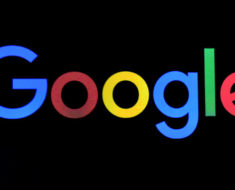Jason Hope and leading entrepreneurs in the technology world are optimistic about the Internet of Things and the future, but there are also many troubling uncertainties. From rogue hackers compromising bank accounts to government agents deploying malware, the modern world is full of risks that attack from the Web. In the past, threats arrived through overland conquests and sea invasions; now they arrive through the Internet of Things. While the Internet is a channel of many real risks, it also offers many benefits. Jason Hope, Elon Musk, Peter Thiel, and others are evaluating the costs and benefits of modern technology to determine if the future will be improved or tarnished by the Internet of Things.
What is the Internet of Things?
Before you can understand the gravity of the hacking risks and other concerns, you must understand the Internet of Things. The Internet of Things has become a buzz-phrase in recent years, but it is an adequate description of what it refers to. The Internet of Things is simply the network of all the devices that have the ability to connect to the Web. In today’s world, the Internet of Things consists of computers, smartphones, vehicles, security systems, entertainment hardware, and other technologies that help people perform routine tasks.
Is Internet Security a Serious Concern?
Since every device connected to the Internet of Things is a potential access point, the online world is becoming increasingly difficult to guard against brute-force hackers, viruses, malware, and other cyber-security risks. To understand this, imagine that the Internet is a castle. With strong walls and a single point of entry, the castle is easy to defend from attackers. However, imagine that thousands of doors are installed in each wall of the castle. These doors are convenient for carrying out daily tasks, but they open the castle up to security risks. In the event of an attack, the castle will be difficult to defend since there are too many entry points to monitor. Adding millions of devices to the Internet of Things is similar to adding doors to every castle wall.
Hackers have already exploited the extra access points in the Internet. In September of 2016, hackers used unprotected Internet-enabled cameras and DVR devices to launch an attack on numerous websites. Twitter and Reddit were compromised, and they were forced to shutdown until the threats were eliminated. The infamous Cloudbleed and WannaCry hacking attacks also exploited flaws in the Internet of Things.
The Internet of Things is ideal for opportunistic hackers because many companies sacrifice high-quality security standards to make devices affordable for consumers. This is an understandable practice for a company that aims to maximize revenue, but hacking can result in damages that negate any gains to society. Private companies or the government must enter the fray to eliminate these security risks.
The Real Costs of Cyber-Attacks
Pundits and technology journalists frequently talk about the risks of hacking attempts, buy many people do not understand that cyber-security risks threaten more than people’s hardware and browsing experience. In a world where everything from financial services to surveillance systems are connected to Internet, viruses and hacking attempts can wreck havoc. The aftermath of these cyber-attacks bear real costs for people. If a bank is attacked, the funds of account-owners can be stolen by a third-party. Alternatively, identities can be compromised through stolen social security numbers, addresses, and contact information. This can result in poor credit scores, financial troubles, and plenty of hardship.
In addition to financial woes, an attack on the Internet of Things can hinder government services. If a large bureau like the Internal Revenue Service is attacked by hackers, confidential information like tax records and personal data can be compromised. This will tarnish the reputation of the US government, and hackers will gain access to terabytes of personal information. This information can be used for a wide range of nefarious reasons. Hackers can also be a hindrance to public safety if they corrupt data used for law enforcement investigations and local governance.
In some large cities, traffic signals and lighting systems have been added to the Internet of Things. If these important infrastructure systems are disabled, the orderly flow of traffic can be disrupted, and life-threatening accidents can occur. Similar problems can occur at water treatment facilities, energy plants, and factories. Some parts of Nuclear power plants are connected to the Internet, so hacking can play a devastating role in military and terrorist attacks.
Related: Jason Hope Pledges $500,000
Inherent Risks in the Internet of Things
The aftermath of the cyber-security attacks is one of the most pressing concerns associated with the Internet of Things, but people should also acknowledge some of the risks associated with simply using devices. Many smart devices collect data about users to perform data research. This data research is officially used by companies to adjust their business strategies according to consumer preferences. This is not a legitimate risk if consumers can opt out of data-sharing, but many devices depend on data-collection to function properly.
For example, Amazon’s virtual assistant technology uses your location and preferences to improve its functions. However, this information can present safety and privacy risks if it lands in the wrong hands. In a worst case scenario, surveillance systems record your actions on an off-site server without your knowledge. In an authoritarian state, these devices could result in an Orwellian situation. Citizens and consumers must remain vigilant to ensure that the Internet of Things does not trample on the privacy rights of individuals in the coming years.
Related: Jason Hope Explores Internet of Things as Newest Technology Solution for Hotels
Benefits of the Internet of Things
While the Internet of Things offers many risks that affect the real world, it also provides many benefits. Through the data analysis capabilities granted by new medical devices on the Internet of Things, medical research will improve. Jason Hope, the philanthropist investor who donated to the SENS Foundation, firmly believes that the Internet of Things can reduce suffering across the globe. Hope is using his experience with technology and finance to invest in technologies that will reduce the risks associated with the online world. With advancements in cyber-security and greater transparency, the Internet of Things can be a tool for the advancement of humankind.
Related: Jason Hope’s Hard Line Stance on the Internet of Things
Dil Bole Oberoi






